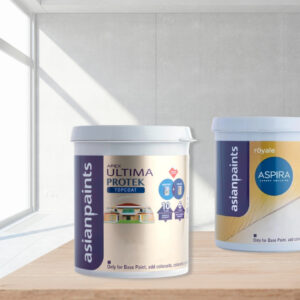THE HIGHEST STANDARD OF GREEN
The Green Seal Standard for Sanitary Paper Products, GS-1, currently delivers measurable impacts for human and environmental health, such as preventing 12.5 million metric tons of CO2 emissions annually compared to conventional fiber. Purchasers trust Green Seal’s standard for Sanitary Paper Products (GS-1) because it ensures certified products have a reduced carbon footprint, avoid sourcing from ancient and endangered forest, and use a chlorine-free bleaching process. Sanitary paper products certified to Green Seal’s standard meet the environmentally preferable purchasing requirements of a host of states, local governments, K-12 schools, colleges, and the federal government. Additionally, products certified to the standard qualify for points in the LEED v4.1 green building standard and earn the Amazon Climate Pledge Friendly badge.
The GS-1 Standard establishes environmental, health, and social requirements for sanitary paper products including:
- Bathroom tissue
- Facial tissue
- Paper towels
- Napkins
- Placemats
EVALUATING FIBER REQUIREMENTS FOR SANITARY PAPER PRODUCTS
Green Seal is evaluating the current fiber requirements in the GS-1 Standard for Sanitary Paper Products to address changes in the fiber supply market for recycled content due to the COVID-19 pandemic and impacts of the China Sword policy. This standard revision will also explore potential certification pathways for sustainably sourced alternative fibers such as bamboo and assess whether different leadership criteria are needed for products serving the household market versus the away-from-home market.
A HIGH-IMPACT INITIATIVE
As single-use items, sanitary paper products can have large impacts on natural resources.
- The United States consumes approximately 9.2 billion pounds — or 28 pounds per person — of toilet paper annually
- Logging in the Canadian boreal forest to create products like toilet paper is occurring at a rapid rate. Between 1996 and 2015 over 28 million acres – roughly the size of Ohio – of the boreal were logged
- Manufacturing tissue products from 100% virgin fiber can generate three times as many CO2 emissions as products made from 100% recycled content
- Manufacturing tissue products from 100% virgin fiber uses approximately 44,900 gallons of water per metric ton of tissue produced
INTENDED OUTCOMES
Reducing Lifecycle Carbon Emissions
The fiber composition of sanitary paper products significantly impacts their overall environmental footprint. For example, products made from virgin fiber have a substantially higher carbon footprint than those made from other materials due to the carbon emissions released from the soil as trees are harvested and the loss of continued carbon storage from the forest. With a certification standard that requires products to be made from environmentally preferable fibers, Green Seal can play a role in reducing the lifecycle carbon emissions of sanitary paper products.
Feasibility in the Marketplace
Green Seal will evaluate the landscape of the recycled fiber market to ensure the fiber requirements in GS-1 are feasible. In addition, alternative sustainable fibers such as sustainably sourced bamboo will be re-evaluated to determine whether these fibers could expand the certification pathways in GS-1 while still providing clear environmental benefits.
COLLABORATIVE PROGRAM DEVELOPMENT
Green Seal’s reputation for credibility and market impact rests on an open and transparent process for developing our science-based criteria by following international best practices. We will seek public comment on our draft criteria and input from industry, environmental researchers and advocates, product purchasers, and the public.
Green Seal relies on a wide community of stakeholders to inform our decisions on final standard criteria. This includes using Working Groups composed of market and technical experts from three interest categories: producers, users, and general interest. This stakeholder feedback is critical to making sure our programs and standards are relevant, scientifically accurate, and a true reflection of environmental leadership in today’s market. During the standard development process, Green Seal strives for balanced participation from all interest categories. To learn more, see our Standards Development Manual.
Our Working Group
Green Seal’s Sanitary Paper Products Working Group members provide expertise in solid waste and recycling, green product procurement, pulp and paper manufacturing, carbon benefits of alternative fibers, and corporate sustainability. This group provides feedback on specific topics including technical aspects of proposed criteria, feasibility, and value in the marketplace.
Working Group Members:
- Allen Hershkowitz, Environmental Science Advisor
- Aramark & Avendra Group
- Cascades
- Cloud Paper
- Essity
- Environmental Paper Network
- General Services Administration
- Georgia Institute of Technology
- Georgia-Pacific
- Hilton-Americas Houston
- Kimberly-Clark Corporation
- Marcal
- McMorrow Reports/FM Link
- Noble House Hotels
- Pima Community College, Tucson
- Resolute Tissue
- Waxie/Envoy Solutions
- West Allis-West Milwaukee School District
- Who Gives A Crap
Project Timeline
The following timeline is an estimate of the project progress. Throughout the following phases, Green Seal welcomes subject matter volunteers with interest and expertise in this market.
- Summer 2023 – Working Group Recruitment
- Fall 2023 – Develop new criteria
- Winter 2023 – 30-day public comment period on the proposed standard
- Spring 2024 – Issuance of the final standard
















